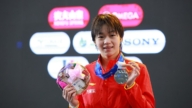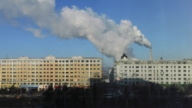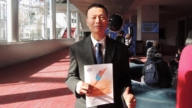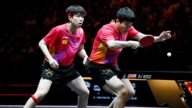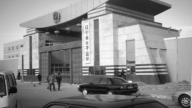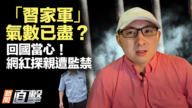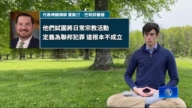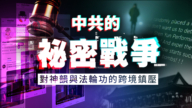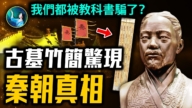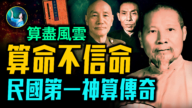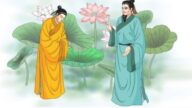【新唐人2011年3月25日讯】目前,中国是全世界征税最高的国家之一。而政府收缴的个人所得税中,有65%来自工薪阶层。分析人士认为,当局应该增加对高收入人群的征税;同时,公开“隐形税负”和财政支出情况,让老百姓知道“税是怎么收的,又是怎么用的。”
据大陆官媒报导,2010年,政府的个人所得税收入增幅高于GDP的增长速度,同比增加22.5%。而这其中,工薪阶层缴纳的个税占65%。虽然人们对此并不感觉意外,但相关报导还是引发了学者和网民的热议。
有网友评论道,平民百姓挣的都是明收入,要缴个税;当官的都是灰色收入,反而不用缴个税。
对此,专家指出,中国目前的税收制度有很多不足,比如:缺少对高收入阶层的征税种类,不能对官员的灰色收入、股权证券、奢侈品消费等进行有效征税。
北京经济学者曹思源:“因为在中国,奢饰品的市场承销量比较高。在中国一些奢饰品销路很畅,甚至在境外都没有达到这么高的水准。它(奢饰品)应该更多地承担一些税负也是很合理的,而奢饰品方面没有这个税种。”
迫于赋税严重、社会贫富差距巨大,当局宣称将提高个税起征点。但《网易》文章指出,真正的高收入群体,仍将继续大量避税逃税,而主要“工薪阶层”依旧是无法逃税的纳税主体。
上海的钱经理对《自由亚洲电台》表示,中国的高收入人群往往可以通过税收法上的一些漏洞、或者是一些地方税务部门疏于管理,达到偷税漏税的目地。
钱经理:“比如他明明是一个年收入几百万的人,他说他只拿5000块钱工资。他只交这5000块钱的税。实际上他其他的收入可能通过别的形式已经给他,他都没有交税。实际上漏掉了很多很多的税。”
有网友则表示,民众并不想“劫富”,但富人不应该逃税;而更重要的是,政府不该过分压榨劳动者,更不该“滥花”这些钱,养了很多的贪官、“蛀虫”,政府应该接受监督。
与民众对政府财政支出透明要求相对应的是,此前中共两会期间,山东政协委员潘耀民的一份提案,首次曝光了高达17%的隐形“馒头税”,一时引起轰动,民众呼吁当局公开各种“隐形税”,使税收透明。
大陆《时代周报》指出,中国人在“不知不觉”中“被缴纳”的“隐形税”主要有:
1、社保、医疗保险等过重,却没有享受到相应的福利。
2、高房价。
3、 通货膨胀导致的铸币税。
4、 行政成本。老百姓如果需要某种医疗和教育等服务资源,大多需要支付过高的贿赂成本。
文章指出,政府从百姓身上通过隐形手段拿走的,远远超过公开的税负。
在此之前,美国财经杂志《福布斯》2009年推出的“全球税负痛苦指数排行榜”,中国高居全球第二。
新唐人记者李谦、萧宇综合报导。
==========================
Heavy Tax Burden on Chinese Working Poor
China has one of the highest taxes in the world.
65% of individual income tax revenues come from
its working class. Analysts believe that the authorities
should increase taxes of high income earners;
At the same time, disclose “hidden taxes" and
government expenditures, so that people know
how the tax is collected and used.
According to Chinese official media, in 2010,
income tax revenues increased by 22.5% from 2009,
surpassing the GPD growth rate in 2010.
65% of the income taxes are from the working class.
Although not surprised by the reports,
scholars and netizens still carried out heated debates.
Some said, the working class earns legitimate income,
and pays income taxes.
On the contrary, most of the officials’ income is “grey",
and they don’t need to pay taxes.
Experts said, China’s current tax system has many
flaws, including no different tax types for the rich.
It cannot tax officials’ gray income, income from stocks.
There is also no luxury tax.
Beijing-based economist Cao Siyuan:
“As there is a large demand for luxury goods in China,
some items can be sold more easily than abroad.
It is reasonable to tax the use of luxury goods.
Currently, there is no luxury tax in China."
The heavy tax burden and enormous wealth gap
have pressured the Chinese authorities to raise
the individual income tax threshold. However,
according to reports on 163.com, the high-income
groups still continue evading taxes;
the working class still pays the most tax revenues.
Mr. Qian, a manager in Shanghai told Free Asian Radio,
high income earners, through taxation system loopholes
and local taxation authorities’ mismanagement,
commit tax evasions and tax frauds.
Qian: “For instance, a person’s annual income is
over a million yuan RMB, but he only claims 5,000 yuan.
So, he only pays taxes on 5,000 yuan RMB.
In fact, he earned in other forms without paying taxes."
Netizens said that people don’t want to “rob the rich",
but the rich shouldn’t evade taxes. More importantly,
the government should not over-tax the working class.
It shouldn’t abuse the money by feeding corrupt officials.
The government should be monitored.
As people request government spending transparency,
during the party’s “two meetings", Shandong’s Rep.
Pan Yaomin exposed a 17% invisible tax on the people.
It immediately caused an uproar.
People urged authorities to disclose invisible taxes.
Chinese newspaper Time Weekly reported,
the invisible taxes paid by the Chinese people include:
1. Heavy taxation on social security and health insurance
without receiving the corresponding benefits
2. High housing prices
3. Seigniorage caused by the surging inflation
4. Administrative costs. People in need of health care
and education services need to pay exorbitant bribes.
The article pointed out, the money taken from the people
through invisible means by the government
far exceeds the public tax revenues.
In the 2009 Global Tax Misery Index by Forbes,
China ranked the second in the world.
NTV reporters Li Qian and Xiao Yu.


